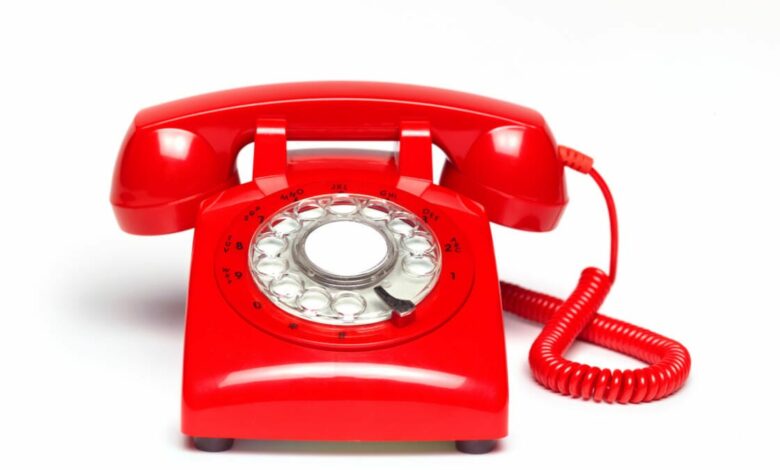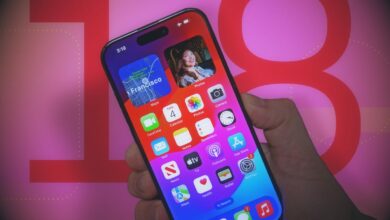Don’t laugh at home landlines: here’s why they’re useful

Earlier this year, AT&T users in many of the most populous cities in the US woke up without network service on their phones. The major outage lasted more than 12 hours, leaving many people without one of their most vital access lines to the modern world.
The carrier quickly apologized to customers.
“Our top priority is and will continue to be keeping our customers connected. We are taking steps to ensure our customers do not experience this in the future,” the company said in a statement.
AT&T also assured people that the outage was not the result of a cyberattack. According to the organization, the outage was due to “the implementation and execution of an incorrect process that we used as we expanded our network.”
For many customers, the outage was also a reminder of the dangers of relying solely on mobile phones. It may have made some think twice about the place of a household appliance that used to be standard but is now almost redundant: the landline phone.
Do you remember the landline?
Landlines are telephones that are connected to specialized wiring in our homes. The iconic image is of a rotary phone — usually rented from the phone company — hanging on a wall or sitting on a counter or table, although push-button and later cordless landlines replaced many of those old phones in the 1980s. Landlines connect to each other via a global communications network that took more than a century to build. But as cell phones became widely available and affordable, many people chose to ditch their landlines altogether.
A 2022 study from the U.S. Centers for Disease Control and Prevention found that only about 29% of American adults lived in a home with a landline, dropped from more than 90% in 2004. The crossover occurred around 2015, when smartphone sales entered a boom that reshaped the tech industry and helped iPhone maker Apple become one of the world’s most valued companies.
Ann Williams is one of those who has not given up their landline. When asked why she still has hers, she describes that after a tornado outbreak on April 27, 2011, when dozens of tornadoes killed at least 250 people and knocked out power for days. Although she moved there after the tornadoes, hearing about the event made her realize how important it is to always have a phone connection.
“The weather here is so unpredictable,” she told me in an interview. But landlines have dedicated power and often work even in an outage. “We remember a day when it was absolutely necessary to have (the landline),” Williams said.
Why are landlines more reliable?
Landlines operate on a separate infrastructure, built on copper telephone lines that are cheap to build and fairly reliable. They also do not have the disadvantages of mobile networks, such as dropped calls, poor and distorted quality or weak reception.
A major reason why people have a landline is that it often works during power outages. This is a major advantage for people who work in emergency services, business or healthcare.
Analog fax machines are also built around landline telephone systems. This means that most hospitals and doctors’ offices, as well as insurance and law firms, require a landline telephone connection.
Disadvantages of landline telephony
The US Federal Communications Commission is Phasing out requirements for telephone companies to provide landline service (Plain Old Telephone Service, or POTS) across the country. As a result, more homes and business offices are being built with Ethernet connections instead of telephone connections.
Landline phone connections aren’t cheap either. CNET’s cousin AllConnect notes that AT&T’s traditional landline phone plan starts at $48 a month, and you have to use the company for internet, too. CenturyLink is cheaper, starting at $30 a month, and Spectrum charges just $20 a month.
And not all landlines use copper phone lines. Increasingly, businesses are tying their phone systems to their Internet connections, a service called Voice over Internet Protocol, or VoIP. AllConnect currently tracks just three service providers that offer old-fashioned landlines: CenturyLink, Comcast Xfinity and Cox.
How do I get a landline?
If you are ready to purchase a landline, call your local phone company and ask about phone service. If you live in an apartment building, it is important to know where the phone jack is. Normally, the landlord should know, and if not, the local phone company should be able to find it.
Here are some follow-up questions you’ll want to ask and what to look for in your answers:
- Are the landlines VoIP or POTS? Ideally, if you are looking for security and reliability, POTS is what you want. VoIP can work, but realize that it will likely rely on your internet modem and connection to work.
- If it’s VoIP, does the company have backup power systems to keep the voice line working in the event of a power outage? Most companies sell backup batteries that you can purchase directly from them. You can use an uninterruptible power supply, such as one from CyberPower or APC. Keep in mind that these are different from portable power supplies. Portable power supplies allow you to stay powered electronically while on the go, but they are not designed to continuously monitor for power outages and then kick in when needed.
- Most local calls are free, but calls outside your area code cost money. What is the fee structure? Companies like AT&T have various additional fees that they charge for national calls, as well as for international long distance calls. Long distance calls in particular are usually charged by the minute, and companies don’t always publish that information on their website. Make sure you know what it costs, and if it’s too much, consider using a chat app like Signal, WhatsApp, Google Meet, or Apple FaceTime for your long distance calls.
What to do with a landline
If you have a landline but are letting it languish and withdrawing money from your bank account every month, you’re not alone. But there are ways to make it more useful.
Google Voice is a popular option, giving you a new phone number that acts as a sort of hub. When people call, Google Voice will then call every phone you’ve connected it to, whether it’s a home landline, cell phone, work phone, or something else.
If you don’t like working with Google, there are other services available, such as Zoom and RingCentral.
A landline telephone can also be connected to a home alarm system and medical alarm sensors, so you can be sure that help will arrive as quickly as possible in an emergency.
If you can’t get a landline
If you don’t qualify for a landline, or don’t like the service offered, you have more options from satellite providers. Companies like HughesNet and SpaceX can support VoIP over their internet connections.
Phone makers like Apple are also slowly building satellite messaging into their devices. The iPhone 14, due to debut in 2022, will have a feature called Emergency SOS, which can connect to a satellite to send location data to your friends or an emergency message to authorities.




